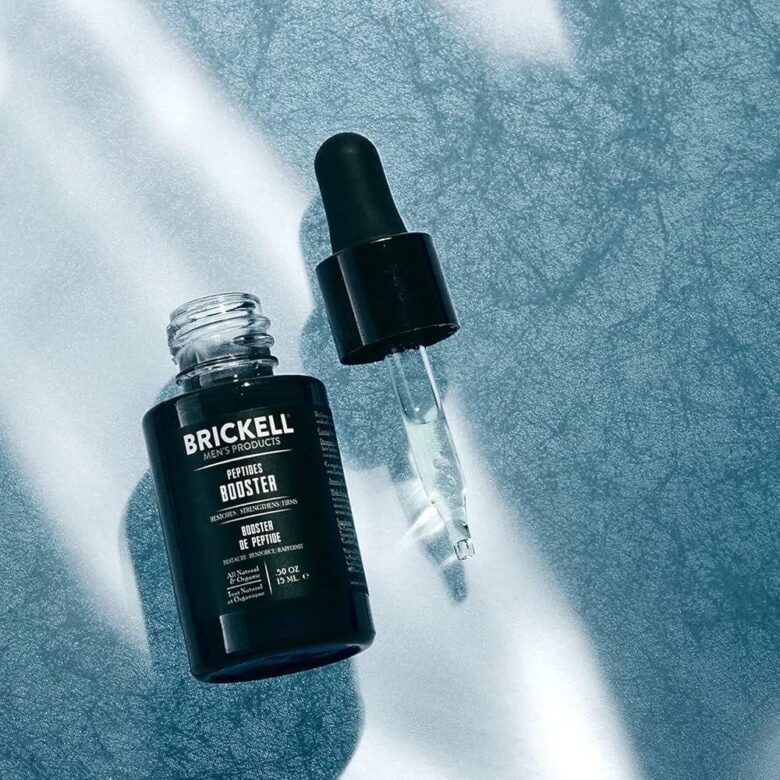As the years add layers to our life experience, the pursuit of vitality, resilience, and youthful vigor often takes center stage for many men over 40. With aging comes a natural shift in our body’s chemistry, leading to changes that can sometimes feel unwelcome. Enter the world of anti-aging peptides—bioactive compounds that are gaining momentum in the realms of health and wellness. These small chains of amino acids hold the promise of revitalizing cellular function, enhancing energy levels, and potentially reversing some signs of aging. In this article, we delve into the science behind anti-aging peptides, exploring their benefits, mechanisms of action, and how they can fit into the lives of men navigating the exciting yet challenging chapter of life beyond their forties. Whether you’re seeking to maintain your edge or simply curious about the latest innovations in age management, join us as we unpack the potential of these remarkable peptides.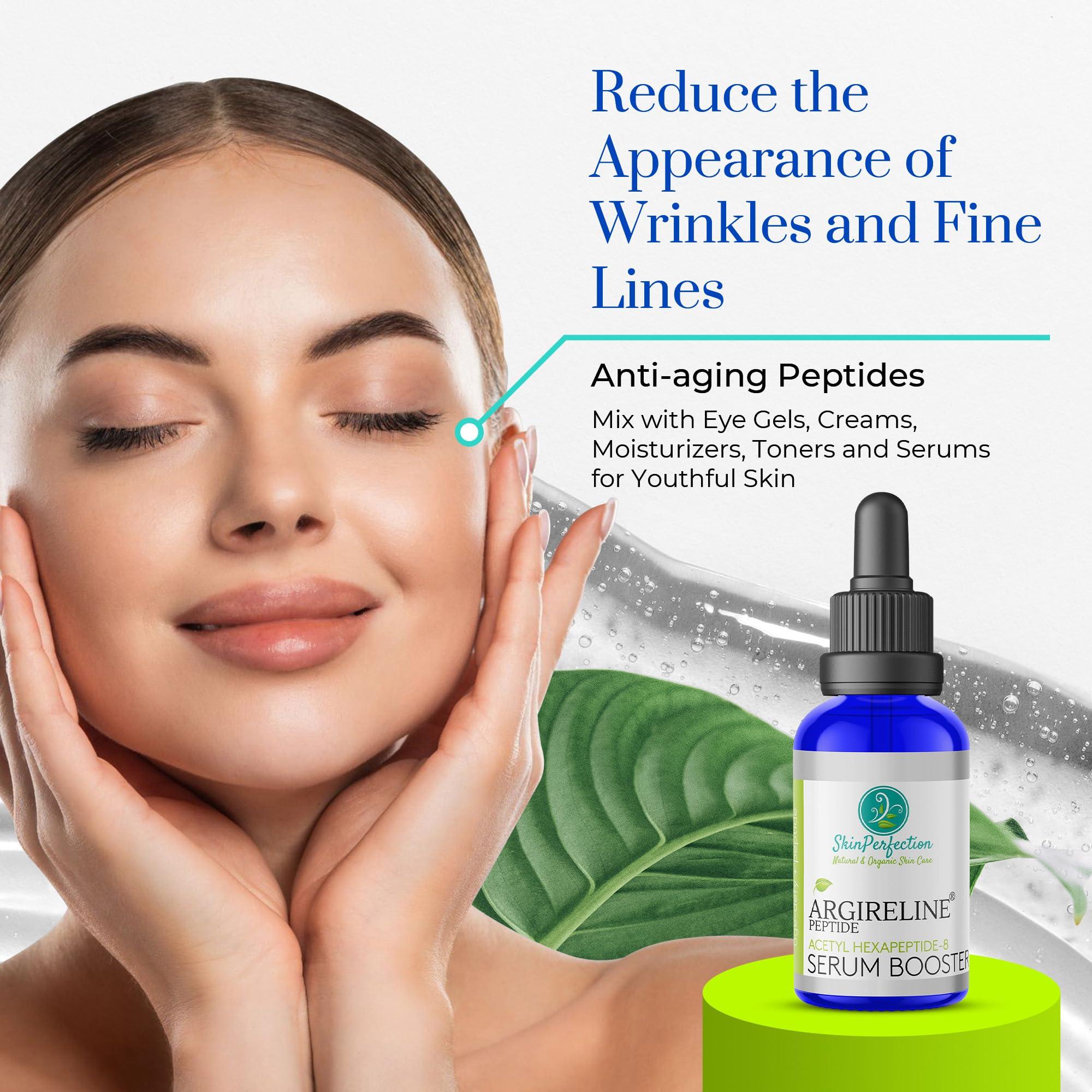
Exploring the Science Behind Anti-aging Peptides
Peptides are short chains of amino acids that play a pivotal role in various biological processes, including the regulation of cellular functions and the promotion of healthy skin. In the context of anti-aging, certain peptides have garnered attention for their ability to stimulate collagen production, improve skin elasticity, and enhance hydration. These benefits can be particularly pertinent for men over 40, as natural collagen synthesis starts to decline significantly with age. Some of the most studied anti-aging peptides include:
- Collagen Peptides: Boosts skin firmness and reduces the appearance of wrinkles.
- Matrixyl: Stimulates collagen synthesis and improves skin repair mechanisms.
- Argireline: Often referred to as “Botox in a jar,” it helps relax facial muscles to reduce the depth of wrinkles.
To further illustrate the effects of these peptides, extensive research has revealed their mechanisms at the cellular level. For instance, collagen peptides can activate fibroblasts—cells responsible for collagen production—which leads to firmer skin and a reduction in visible aging signs. In contrast, peptides like Matrixyl can enhance cellular communication, promoting optimal skin regeneration. The following table highlights key peptides and their respective benefits:
| Peptide | Benefits |
|---|---|
| Collagen Peptides | Enhances skin firmness, reduces wrinkles |
| Matrixyl | Stimulates skin repair, boosts collagen |
| Argireline | Reduces wrinkle depth, relaxes muscles |
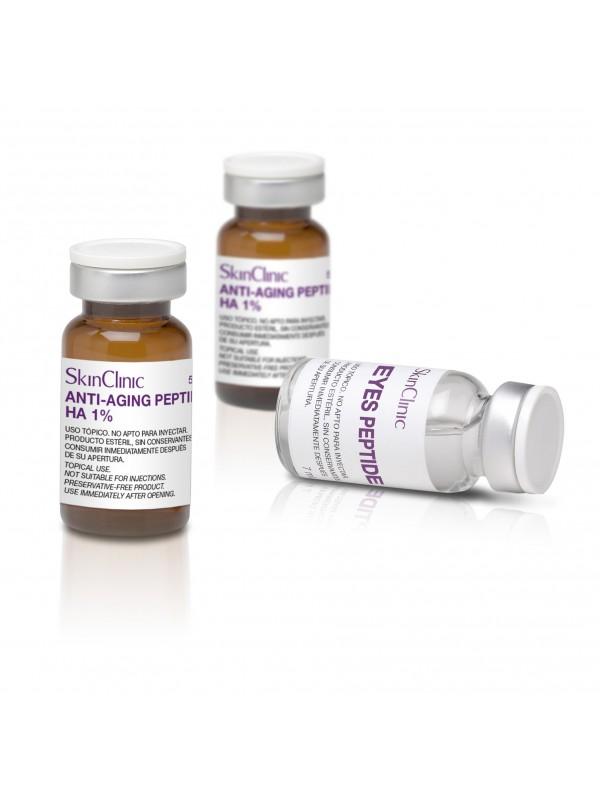
Identifying Key Peptides for Mens Health
Understanding the role of peptides in promoting men’s health, particularly as they age, is crucial for optimizing wellness. Peptides are short chains of amino acids that act as signaling molecules in the body, aiding in various physiological processes. For men over 40, certain peptides stand out for their potential benefits in areas like muscle growth, fat loss, and overall vitality. Key peptides to consider include:
- Human Growth Hormone (HGH) - Enhances recovery and muscle mass.
- IGF-1 (Insulin-like Growth Factor 1) - Stimulates muscle growth and fat metabolism.
- PT-141 (Bremelanotide) - Addresses sexual health and libido.
- CJC-1295 – Promotes increased Growth Hormone secretion.
- Thymosin Beta-4 – Supports tissue repair and reduces inflammation.
When considering these peptides, it’s essential to recognize their synergy and how they interact with the body’s systems. Their efficacy may vary depending on individual health conditions, lifestyle choices, and goals. Below is a comparative look at the key peptides to help in decision-making:
| Peptide | Primary Benefit | Administration Method |
|---|---|---|
| HGH | Muscle growth & recovery | Injection |
| IGF-1 | Fat loss & muscle gain | Injection |
| PT-141 | Enhanced libido | Nasal spray/injection |
| CJC-1295 | Increased HGH | Injection |
| Thymosin Beta-4 | Tissue repair | Injection |
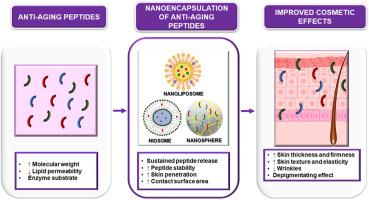
Benefits of Peptides for Skin and Muscle Recovery
Peptides have emerged as powerful allies in the quest for youthful skin and robust muscle recovery, especially for men over 40. These short chains of amino acids play a crucial role in the body’s natural healing processes. When applied topically or taken as supplements, peptides can directly stimulate collagen production, enhance skin elasticity, and reduce the appearance of fine lines and wrinkles. By incorporating peptides into a skincare regimen, men can effectively combat the visible signs of aging and promote a more vibrant complexion. Some notable benefits include:
- Increased Collagen Production: Boosts skin firmness and reduces sagging.
- Improved Moisture Retention: Provides hydration, leading to a plump and healthy appearance.
- Enhanced Muscle Repair: Promotes faster recovery after workouts, reducing downtime.
- Skin Healing: Aids in healing minor cuts and scars, enhancing skin texture.
Moreover, peptides not only benefit the skin but also contribute significantly to muscle recovery. After intense workouts, peptides can accelerate the repair of muscle fibers and help alleviate soreness. This is particularly important for men in their 40s, who may experience a slower recovery rate than younger individuals. The efficacy of peptides in recovery is supported by scientific research highlighting their ability to reduce inflammation and promote muscle growth. Below is a table summarizing key peptides and their specific benefits:
| Peptide | Benefit |
|---|---|
| Collagen Peptides | Improve skin elasticity and hydration. |
| Creatine Peptides | Enhance muscle recovery and growth. |
| TB-500 | Accelerate repair and reduce inflammation. |
| GHK-Cu | Stimulate collagen and improve skin regeneration. |
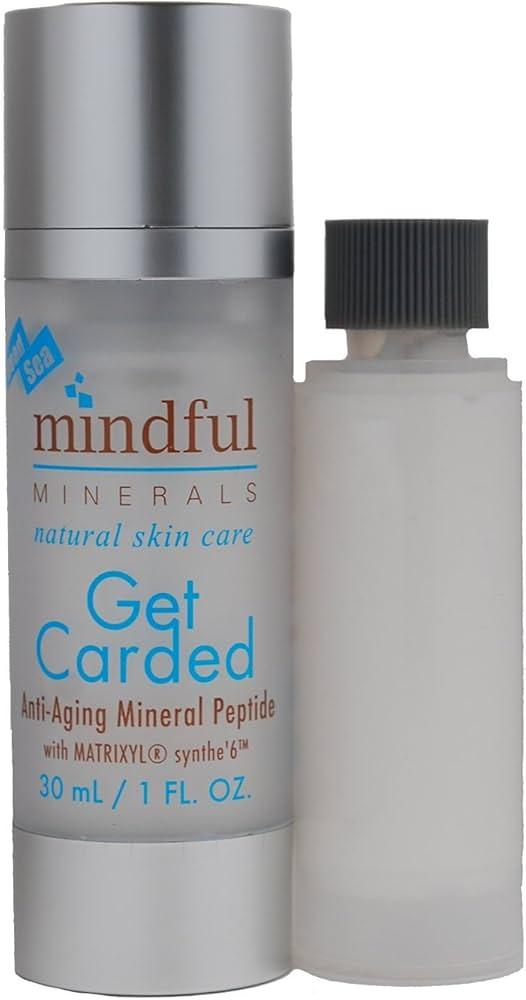
Integrating Peptides into Your Daily Routine
Incorporating peptides into your daily regimen can be a game-changer as you navigate the challenges of aging after 40. Consider experimenting with a variety of peptides, each offering unique benefits to enhance skin elasticity, promote muscle recovery, and boost overall vitality. Here are some ways to seamlessly integrate these powerful compounds into your life:
- Morning Routine: Start your day with a peptide-infused supplement or beverage, setting a positive tone for your metabolic health.
- Post-Workout: Utilize peptides as part of your recovery strategy to improve muscle regeneration and reduce soreness.
- Topical Applications: Explore serums or creams containing anti-aging peptides that can rejuvenate your skin while hydrating it throughout the day.
For the most effective results, maintain a consistent schedule and pair your peptide use with a balanced diet and lifestyle. Below is a simple overview of some popular anti-aging peptides and their primary benefits:
| Peptide | Benefit |
|---|---|
| Collagen Peptides | Supports skin elasticity and reduces wrinkles. |
| Matrixyl 3000 | Stimulates collagen and hyaluronic acid production. |
| GHK-Cu | Promotes wound healing and skin repair. |
| Thymosin Beta-4 | Enhances tissue regeneration and reduces inflammation. |
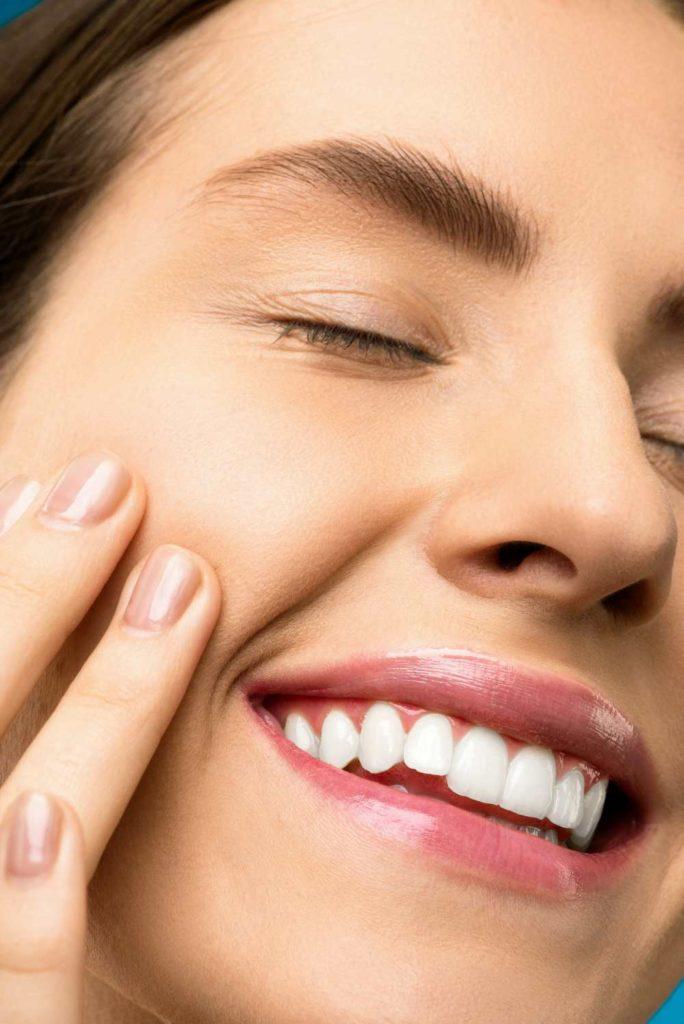
Safety and Side Effects of Anti-aging Peptide Use
As men over 40 explore the potential of anti-aging peptides, it is crucial to prioritize safety and awareness of possible side effects. While many users report benefits such as improved skin elasticity and reduced wrinkles, the use of these peptides should be approached with caution. Engineered to stimulate cellular regeneration, their effects can vary widely depending on the individual’s health condition and dosage. Common side effects might include:
- Allergic reactions such as skin irritation or rashes
- Nausea or gastrointestinal discomfort
- Headaches or dizziness
- Injection site reactions if administered subcutaneously
To ensure a safe experience, it is recommended that potential users consult with a healthcare professional prior to starting any peptide regimen. Moreover, understanding the long-term implications of anti-aging peptides is essential, as ongoing research continues to uncover their full impact. Here’s a simple breakdown of safety considerations:
| Safety Consideration | Description |
|---|---|
| Professional Guidance | Consult a healthcare provider for personalized advice. |
| Quality of Product | Choose reputable sources to ensure purity and efficacy. |
| Dosage Monitoring | Start with lower doses and gradually adjust based on tolerance. |
Choosing the Right Products for Optimal Results
When navigating the world of anti-aging peptides, it’s crucial to select products that are tailored to your specific skin concerns and goals. Not all peptides are created equal; therefore, understanding the different types is key. Look for products that contain synthetic peptides designed for deep skin penetration, as they can stimulate collagen production and improve overall skin elasticity. Additionally, consider products with a formulation that includes beneficial ingredients such as hyaluronic acid and vitamin C, which work synergistically to hydrate and rejuvenate the skin. Here’s what to focus on:
- Purity: Ensure peptides are high quality and free from harmful additives.
- Brand Reputation: Choose products from reputable brands with positive reviews.
- Concentration: Check for optimal peptide concentration for effective results.
- User Testimonials: Look for real experiences to gauge effectiveness.
Once you’ve narrowed down your options, pay attention to the application methods and frequency of use recommended by the manufacturer. For instance, it’s common to find peptide serums designed for evening application, allowing your skin to absorb and repair overnight. In addition, consider complementary products that can enhance your regimen, like moisturizers or sunscreens with anti-aging properties. Below is a table summarizing the key factors to consider when evaluating peptide products:
| Factor | Description |
|---|---|
| Type of Peptide | Look for collagen-boosting peptides |
| Additional Ingredients | Hydrators like hyaluronic acid |
| Formulation | Serum, cream, or injectable options |
| Clinical Studies | Supported by research? |
Future Trends in Anti-aging Peptide Research for Men
As research in the field of anti-aging peptides progresses, it is becoming increasingly clear that targeted therapies are on the horizon for men over 40. The focus is shifting towards personalized peptide regimens that address the unique hormonal and physiological changes experienced by aging males. Future studies aim to enhance peptide delivery systems, which may lead to higher efficacy and reduced side effects. Innovative methods, such as nanotechnology and transdermal patches, could revolutionize the way these compounds are administered, offering convenience and improving bioavailability.
Pioneering developments in peptide sequences and synthesis are also set to expand the repertoire of anti-aging agents available for men. Researchers are exploring novel peptide formulations that can effectively target aging markers, such as reduced collagen production and increased oxidative stress. This includes examining the potential of synthetic peptides that mimic naturally occurring hormones or growth factors, with the goal of stimulating processes like muscle regeneration and skin elasticity. As this field evolves, we can anticipate exciting breakthroughs that not only offer cosmetic benefits but also enhance overall health and vitality in middle-aged men.
Q&A
Q&A: Exploring Anti-Aging Peptides for Men Over 40
Q1: What are anti-aging peptides, and how do they work?
A: Anti-aging peptides are short chains of amino acids that can signal the body to produce more collagen and elastin, proteins crucial for maintaining skin elasticity and firmness. They work by mimicking the naturally occurring peptides in our body, helping to promote skin repair, reduce fine lines, and improve overall texture. In other words, they act like tiny messengers that communicate to your skin cells the need for rejuvenation.
Q2: Why should men over 40 consider using peptides?
A: As men age, their skin naturally undergoes changes, often becoming drier and losing its youthful elasticity. After 40, the decrease in collagen production can lead to more pronounced wrinkles and sagging skin. Anti-aging peptides can be a valuable addition to a skincare regimen, helping to combat these signs of aging by promoting skin health and vitality, giving men a more refreshed appearance.
Q3: Are peptide treatments safe for men?
A: Yes, peptide treatments are generally considered safe for men. They are well-tolerated by most skin types and have a lower risk of causing irritation compared to harsher treatments. However, it’s always wise to perform a patch test or consult with a dermatologist before introducing new products, ensuring that they align with individual skin needs.
Q4: How can men incorporate peptides into their skincare routine?
A: Incorporating peptides is straightforward! Look for serums, creams, or eye treatments that list peptides among their active ingredients. Use them after cleansing and before any heavier creams to maximize absorption. Consistency is key, so incorporating them into a daily routine can yield the best results over time.
Q5: How long does it take to see results from using peptide products?
A: While results can vary based on individual skin types and specific products, many users report seeing noticeable improvements within 4 to 12 weeks of consistent use. Patience and regular application are essential, as the cumulative effects of peptides promote long-term skin health rather than immediate change.
Q6: What other lifestyle changes can complement the use of peptides?
A: Alongside the use of peptides, men can enhance their anti-aging regimen through healthy lifestyle choices. This includes staying hydrated, maintaining a balanced diet rich in antioxidants, engaging in regular physical activity, and practicing sun protection to shield the skin from UV damage. Adequate sleep and stress management also play pivotal roles in skin health.
Q7: Are there any side effects associated with peptide use?
A: Most peptides are well-tolerated, and side effects are rare. However, some individuals may experience minor irritation or allergic reactions. Ingredients vary by product, so it’s essential to read labels carefully and choose products that suit your skin type.
Q8: Are there specific peptides that are particularly beneficial for men over 40?
A: Yes! Look for peptides such as Argireline (often dubbed “Botox in a bottle”) that help reduce wrinkle depth, or Matrixyl, which encourages collagen synthesis. Copper peptides are also excellent as they promote healing and enhance elasticity. Each of these can uniquely benefit mature skin!
Q9: What should men look for on product labels when choosing peptides?
A: When selecting peptide products, look for those that feature clinically proven peptides and avoid products with excessive fillers or scents that may irritate the skin. Also, consider formulations with complementary ingredients like hyaluronic acid or vitamin C, which can enhance the overall effectiveness.
Q10: How can men be more proactive in their anti-aging efforts?
A: Beyond using peptides, being proactive means adopting a holistic approach to skincare and health. Regular skincare check-ins, consulting knowledgeable dermatologists, and choosing age-appropriate products can significantly impact skin quality. Embracing self-care routines not only improves skin but also boosts overall well-being!
Conclusion:
For men over 40, incorporating anti-aging peptides into their daily routine can pave the way for a youthful appearance and improved skin health. By understanding how these powerful molecules function and combining them with best practices in skincare and lifestyle, men can confidently embrace aging while looking their best.
Concluding Remarks
the landscape of skincare and wellness is evolving, and for men over 40, anti-aging peptides are emerging as a promising avenue for enhancing vitality and rejuvenation. These powerful compounds, with their ability to stimulate collagen production and promote cellular repair, offer a sophisticated approach to addressing the visible signs of aging. While science continues to unveil the potential of these peptides, it’s essential to pair them with a balanced lifestyle, including a nutritious diet and regular exercise, to maximize their benefits. As you navigate the myriad options available, keep in mind that the journey toward youthful resilience is not just about looking good but feeling your best at every stage of life. Embrace the possibility of a newer, more vibrant you—after all, age is merely a number; it’s how you choose to live that truly defines your essence.

